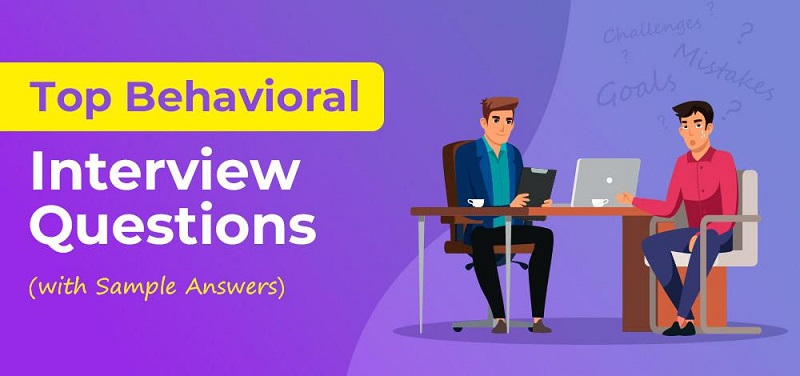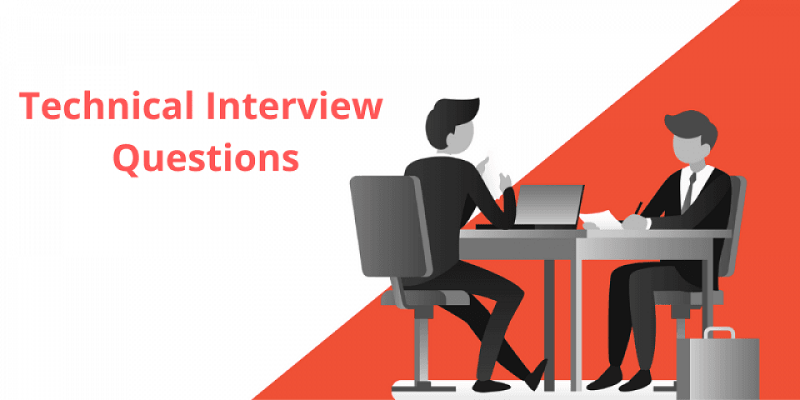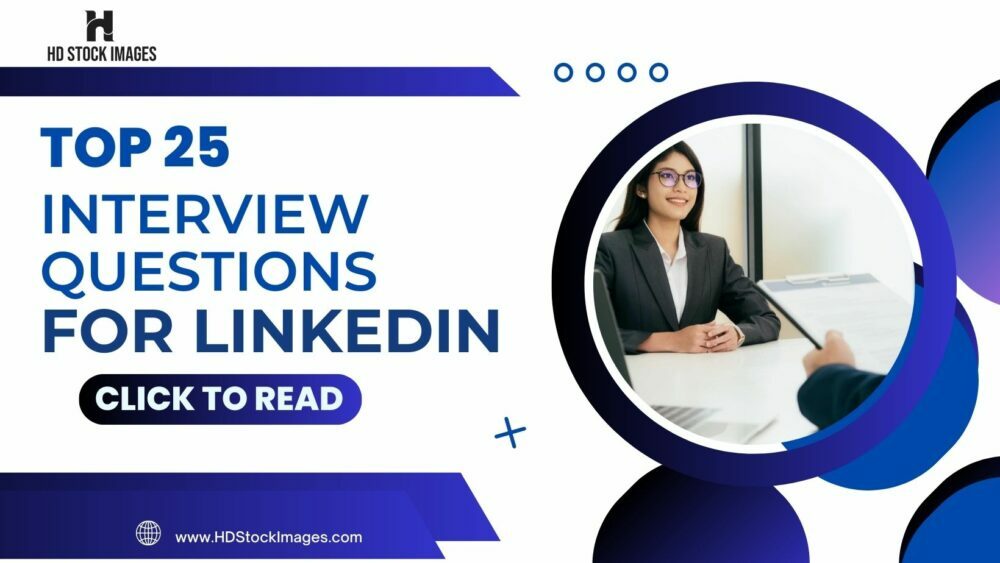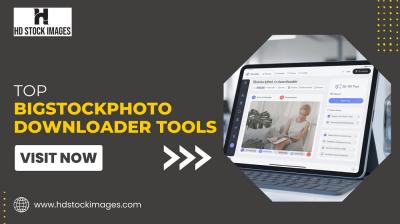Introduction
Behavioral Interview Questions

1. Tell me about a time when you faced a challenging situation at work and how you resolved it?
Answer: In my previous role, I encountered a challenging situation when a key team member unexpectedly left just before a crucial project deadline. To address this, I quickly reallocated responsibilities, communicated the new plan to the team, and motivated everyone to work together to meet the deadline. By leveraging the team's strengths, increasing collaboration, and implementing efficient work strategies, we completed the project on time.2. Describe a situation where you had to work as part of a team to achieve a common goal?
Answer: During a company-wide initiative, I collaborated with a diverse team from different departments. We had the shared goal of implementing a new customer service system. Through effective communication, regular meetings, and active participation, we leveraged each other's expertise and worked cohesively to analyze requirements, design the system, and ensure successful implementation, resulting in improved customer satisfaction and streamlined operations.3. Share an example of a time when you had to deal with a difficult coworker or client and how you handled it?
Answer: In a previous role, I encountered a challenging coworker who often disagreed with my ideas. To address this, I proactively sought common ground, actively listened to their perspective, and acknowledged their input. By showing empathy, maintaining professionalism, and focusing on shared objectives, I was able to build a more positive working relationship, leading to improved collaboration and the successful completion of shared tasks.4. Discuss a project or task that didn't go as planned. What did you learn from it?
Answer: In a recent project, we faced unexpected delays due to resource constraints. This experience taught me the importance of regularly monitoring project progress, identifying potential risks, and developing contingency plans. Additionally, I learned the significance of effective communication and managing stakeholder expectations to maintain transparency and trust during challenging situations.5. Tell me about a time when you had to decide under pressure. How did you handle it?
Answer: In a critical situation, I had to make a quick decision to address a customer's urgent issue. I analyzed available information, consulted with relevant colleagues, and made a decisive judgment call based on the customer's needs and company priorities. By effectively communicating the decision to the customer and executing the necessary actions promptly, I resolved the issue satisfactorily while managing the pressure effectively.Technical Questions

6. Explain a complex project you worked on, highlighting your role and the outcome.
Answer: I worked on a complex project where I was responsible for developing a web application for a client. My role involved gathering requirements, designing the architecture, and implementing the front-end and back-end functionalities. The outcome was a fully functional and user-friendly application that met the client's needs and received positive feedback from users.7. Discuss your experience with a specific programming language or software tool.
Answer: I have extensive experience with Java programming language. I have used Java for developing backend applications, implementing object-oriented designs, and leveraging its robust libraries and frameworks. This proficiency in Java has allowed me to build scalable and efficient solutions for various projects.8. How would you approach troubleshooting a technical issue?
Answer: To troubleshoot a technical issue, I would start by analyzing the symptoms and gathering relevant information about the problem. I would then systematically narrow down the possible causes, checking logs, reviewing code, and conducting targeted tests. By following a logical and systematic approach, I can identify and resolve the root cause of the issue effectively.9. Describe your familiarity with relevant industry standards and best practices.
Answer: I am familiar with industry standards and best practices, such as coding standards, security practices, and design principles. I adhere to established coding conventions, follow secure coding practices to protect against vulnerabilities, and incorporate design patterns and SOLID principles to ensure maintainable and scalable code.10. Share an example of how you continuously improve your technical skills.
Answer: I continuously improve my technical skills by actively seeking opportunities for learning and growth. I regularly participate in online courses, workshops, and webinars to stay updated on the latest technologies and industry trends. I also engage in personal projects and side experiments to explore new tools and frameworks, allowing me to expand my knowledge and capabilities in the ever-evolving tech landscape.Company Knowledge and Fit
11. What interests you about our company, and why do you think you'd be a good fit?
Answer: I am particularly interested in your company's strong emphasis on innovation and its commitment to developing groundbreaking solutions in the technology industry. Your collaborative and team-oriented culture resonates with my work style, and I believe my skills and experience align well with the company's goals and values. I am confident that my ability to adapt to new technologies and my passion for driving impactful results would make me a valuable asset to your team.12. How do you stay updated on industry trends and developments?
Answer: To stay updated on industry trends and developments, I actively engage in professional networks, follow influential thought leaders on social media, and subscribe to reputable technology blogs and newsletters. I also make a point to attend industry conferences, webinars, and workshops to gain insights into emerging technologies and best practices. By consistently seeking knowledge and staying informed, I ensure that I remain current and equipped to address the evolving challenges and opportunities in the industry.13. Describe your understanding of our company's products/services and how they align with your career goals.
Answer: From my research, I understand that your company offers innovative software solutions that help businesses streamline their operations and drive growth. The focus on leveraging technology to optimize efficiency and deliver exceptional value aligns perfectly with my career goals of utilizing my skills to make a tangible impact. Your products/services resonate with my passion for creating solutions that solve real-world problems, and I am excited about the opportunity to contribute to the continued success of your offerings.14. What do you think are the biggest challenges our industry/company is currently facing, and how would you address them?
Answer: One of the significant challenges in our industry today is the rapid pace of technological advancements and the need to stay ahead of the competition. To address this, our company must foster a culture of continuous learning and innovation. Encouraging employees to embrace emerging technologies, promoting cross-functional collaboration, and investing in research and development can help us stay at the forefront of the industry. Additionally, keeping a close eye on market trends and customer needs will enable us to anticipate challenges and adapt our strategies proactively.15. How do you prioritize and manage your workload in a fast-paced environment?
Answer: In a fast-paced environment, I prioritize my workload by first identifying the most critical tasks and deadlines. I break down larger projects into smaller, manageable tasks and create a structured plan to ensure efficient execution. I utilize project management tools to track progress and maintain clear communication with stakeholders to manage expectations. I am adept at quickly adapting to changing priorities and multitasking effectively to ensure that deadlines are met without compromising the quality of work.Leadership and Problem-Solving Questions
16. Describe a time when you took on a leadership role to resolve a challenging situation.
Answer: In a previous project, our team was falling behind schedule due to communication issues and a lack of coordination. Recognizing the need for leadership, I stepped up and facilitated regular team meetings to address concerns, clarify roles, and establish clear objectives. By implementing a collaborative approach, fostering open communication, and providing guidance, we were able to align our efforts, boost morale, and successfully deliver the project on time.17. How do you approach decision-making when faced with conflicting opinions or information?
Answer: When faced with conflicting opinions or information, I take a balanced approach by actively listening to all perspectives and gathering as much relevant information as possible. I analyze the pros and cons of each option, considering the potential impact on stakeholders and project goals. If consensus is not possible, I make a decision based on a logical assessment of the available information and communicate it transparently, explaining the rationale behind the decision.18. Share an example of a time when you identified a problem or inefficiency and implemented a successful solution.
Answer: In my previous role, I noticed a repetitive manual process that was consuming a significant amount of time and resources. Recognizing the opportunity for improvement, I researched and proposed the implementation of an automation tool. After receiving buy-in from stakeholders, I led the team in developing and deploying the automation solution. The result was a significant reduction in processing time, increased accuracy, and improved overall efficiency.19. How do you motivate and inspire your team members to achieve their best work?
Answer: I believe in fostering a positive and supportive work environment where team members feel valued and empowered. I motivate and inspire my team by recognizing and appreciating their contributions, providing constructive feedback, and setting clear goals and expectations. I encourage open communication, promote a sense of ownership and autonomy, and offer opportunities for growth and development. By leading by example, fostering a collaborative culture, and celebrating successes, I strive to create a motivated and high-performing team.20. Discuss a time when you had to navigate a difficult team dynamic or resolve conflicts within a group.
Answer: In a cross-functional team, I encountered a situation where there was a significant conflict between two team members that was impacting the overall team dynamic and productivity. To address this, I initiated one-on-one conversations with each individual to understand their concerns and perspectives. I facilitated a team meeting to encourage open dialogue, fostered empathy and understanding, and guided the team toward finding a mutually beneficial resolution. By promoting effective communication and collaboration, we were able to overcome the conflict, restore team cohesion, and achieve our project objectives.Personal Development and Career Goals
21. How do you prioritize your personal development and career growth?
Answer: I prioritize my personal development and career growth by setting specific goals and creating a plan to achieve them. I continuously seek opportunities to learn and acquire new skills through training, certifications, and professional development programs. I actively seek feedback and engage in self-reflection to identify areas for improvement. Additionally, I stay updated on industry trends and advancements to remain relevant in a rapidly evolving field.22. Share an example of a time when you faced a professional challenge and how you overcame it.
Answer: In a previous role, I was assigned a project with a tight deadline and complex requirements. Despite initial challenges, I overcame them by breaking down the project into manageable tasks, prioritizing critical components, and effectively delegating responsibilities to team members. I maintained open communication with stakeholders, adjusted timelines when necessary, and ensured clear alignment with project objectives. Through perseverance, effective problem-solving, and collaboration, we successfully delivered the project on time and achieved the desired outcomes.23. What are your long-term career goals, and how do you plan to achieve them?
Answer: My long-term career goal is to assume a leadership position in my field, where I can contribute to strategic decision-making, mentor others, and drive meaningful impact. To achieve this, I plan to continue expanding my technical expertise, honing my leadership and communication skills, and seeking opportunities to take on progressively more challenging and impactful roles. Additionally, I will actively seek out mentorship and networking opportunities to learn from experienced professionals and build valuable connections.24. How do you handle feedback and incorporate it into your professional growth?
Answer: I value feedback as a valuable tool for personal and professional growth. When receiving feedback, I listen attentively, seek clarification if needed, and remain open-minded. I reflect on the feedback to identify areas for improvement and create an action plan to address them. I actively seek opportunities to apply the feedback, whether through targeted skill development, seeking guidance from mentors, or incorporating new approaches into my work. By embracing feedback, I continuously strive to enhance my performance and achieve higher levels of success.25. Describe a situation where you had to step outside of your comfort zone to achieve a goal or take on a new responsibility.
Answer: I had an opportunity to lead a high-profile presentation to senior executives, which required public speaking skills—a skill I was initially uncomfortable with. However, recognizing the importance of the opportunity, I decided to step outside of my comfort zone. I prepared diligently, sought guidance from experienced speakers, and practiced extensively. By embracing the challenge, I successfully delivered the presentation, received positive feedback, and gained confidence in my ability to tackle unfamiliar situations. This experience reinforced my belief in the value of taking calculated risks and embracing growth opportunities.Stay interviews are so important, evaluating the organization temperature and gaining some super valuable insight on what you can do as a leader to help and even do better. We operate in the fast lane almost all of the time, this leaves us with blind spot…https://t.co/zErAFna5M2
— Kevin Inman (@kinman1313) June 29, 2023

 admin
admin








